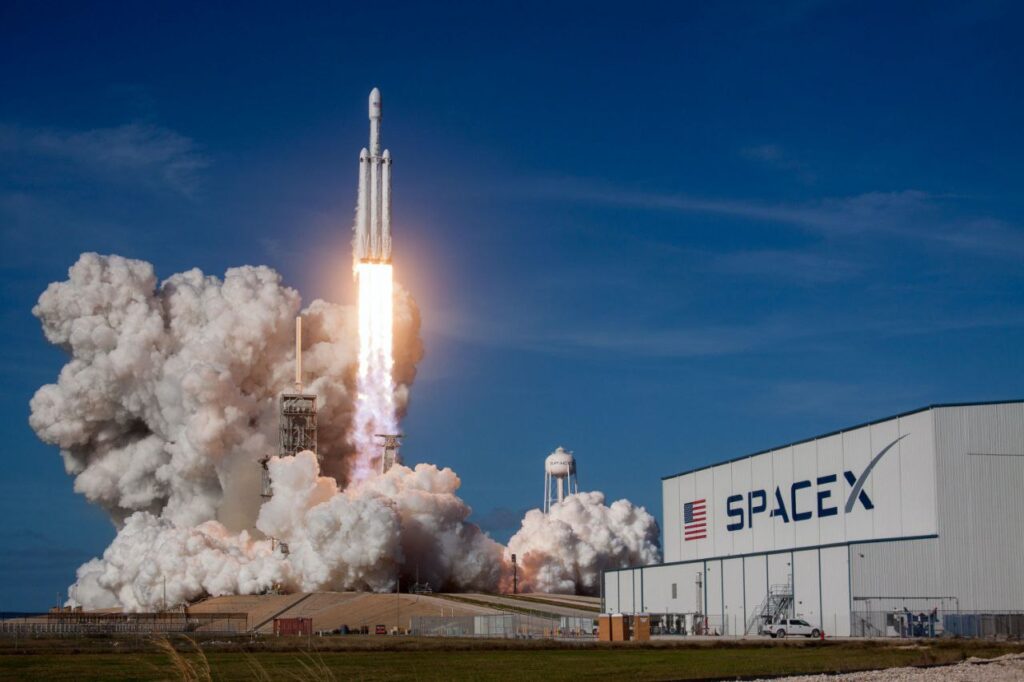Space technology has always been at the forefront of human curiosity and innovation. From the early days of the Space Race to the present, remarkable advancements have continually pushed the boundaries of what is possible beyond our planet. In this article, we’ll explore the latest developments in space technology that are propelling humanity into the future.
Private Space Companies: A New Era
In recent years, private companies like SpaceX, Blue Origin, and Virgin Galactic have transformed the space industry. These companies have played a significant role in making space more accessible, with reusable rockets and ambitious missions, including lunar landings and commercial space tourism.

Advancements in Rocket Technology
One of the key drivers of space exploration is rocket technology. Innovations such as the Starship by SpaceX and the New Glenn by Blue Origin are pushing the envelope in terms of payload capacity, reusability, and affordability. These advancements are critical for future lunar and Martian missions.

Exploring the Moon and Mars
NASA’s Artemis program aims to return humans to the Moon, with plans to establish a sustainable presence. This mission will leverage cutting-edge technology, such as the Space Launch System (SLS) and the Orion spacecraft, to make lunar exploration a reality. Meanwhile, preparations for human missions to Mars are also underway, with concepts like the Mars Sample Return mission.

International Collaboration in Space
Collaboration has become a cornerstone of space technology development. The International Space Station (ISS) continues to serve as a symbol of international cooperation, and more nations are joining forces to explore space together. Projects like the James Webb Space Telescope (JWST), a joint effort by NASA, ESA, and the Canadian Space Agency, showcase the benefits of global collaboration.

Advanced Satellite Technology
Satellites play a crucial role in Earth observation, telecommunications, and scientific research. Miniaturization and improved propulsion systems have led to a surge in the number of small satellites, which are being used for a wide range of purposes, including global internet coverage and climate monitoring.

Space Sustainability and Debris Mitigation
As space becomes more congested, concerns about space debris are growing. Space agencies and companies are working on technologies to track and remove debris to ensure the long-term sustainability of space activities.

Lunar and Martian Habitats
A critical aspect of future space exploration is establishing sustainable habitats on the Moon and Mars. Advanced life support systems, 3D printing technology, and resource utilization techniques are being developed to create self-sustaining environments for astronauts. The Artemis program and initiatives like SpaceX’s Starship are key players in making these ambitions a reality.

Space Tourism
The idea of commercial space tourism is no longer science fiction. Companies like Virgin Galactic and Blue Origin are pioneering suborbital space tourism, allowing civilians to experience a few minutes of weightlessness and breathtaking views from the edge of space. Moreover, SpaceX’s Crew Dragon and other commercial spacecraft are making orbital space tourism a near-term possibility.

Space-Based Solar Power
Space-based solar power is an innovative concept that involves capturing solar energy in space and transmitting it wirelessly to Earth. This technology could provide a constant, clean, and virtually unlimited source of energy. Research and development efforts are ongoing to make this ambitious idea a reality.

Advanced Propulsion Systems
Spacecraft propulsion is evolving with the development of advanced propulsion systems. Electric propulsion, nuclear propulsion, and even concepts like solar sails are being explored to enable faster, more efficient, and longer missions to distant destinations in our solar system and beyond.

Space Exploration Beyond Our Solar System
While much of the focus has been on the Moon, Mars, and nearby celestial bodies, the quest to explore exoplanets and even interstellar space is gaining momentum. Concepts like the Breakthrough Starshot project aim to send tiny spacecraft to Alpha Centauri, while the search for habitable exoplanets continues.

AI and Autonomous Systems
Artificial intelligence is playing a crucial role in space technology. AI systems are being used to analyze vast amounts of data from space missions, aid in autonomous navigation, and even control spacecraft. AI will become increasingly important as missions venture further into the cosmos.

Conclusion
The future of space technology is incredibly promising. Private space companies, international collaboration, and advancements in various aspects of space exploration are opening up opportunities for humanity that were once unimaginable. With these developments, we are on the brink of a new era in space exploration, where the cosmos is within closer reach than ever before. As humanity’s reach extends further into the cosmos, these advancements will not only shape the future of space exploration but also have far-reaching implications for science, industry, and our understanding of the universe. The possibilities are limited only by our imagination and the technology we create.
